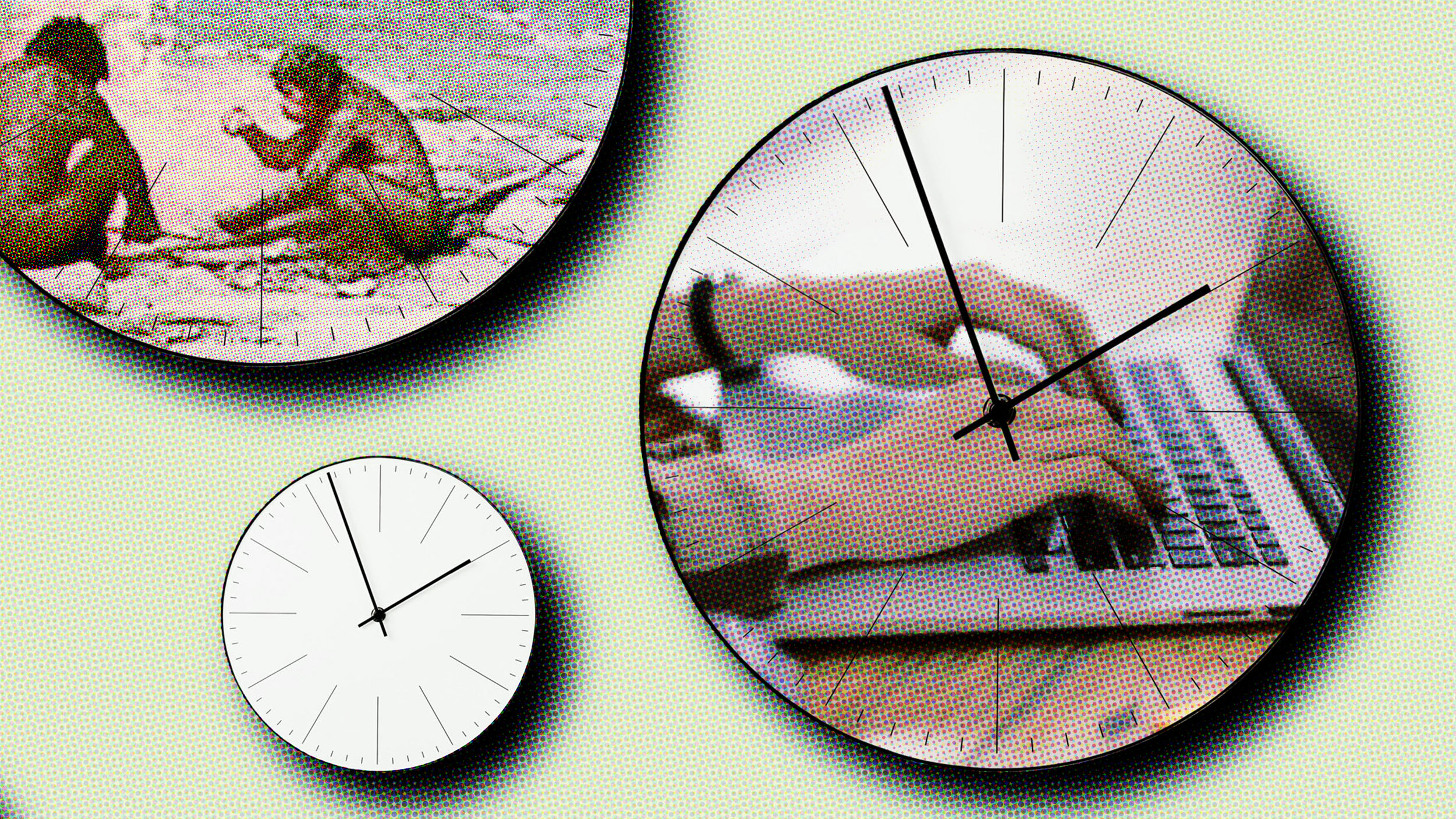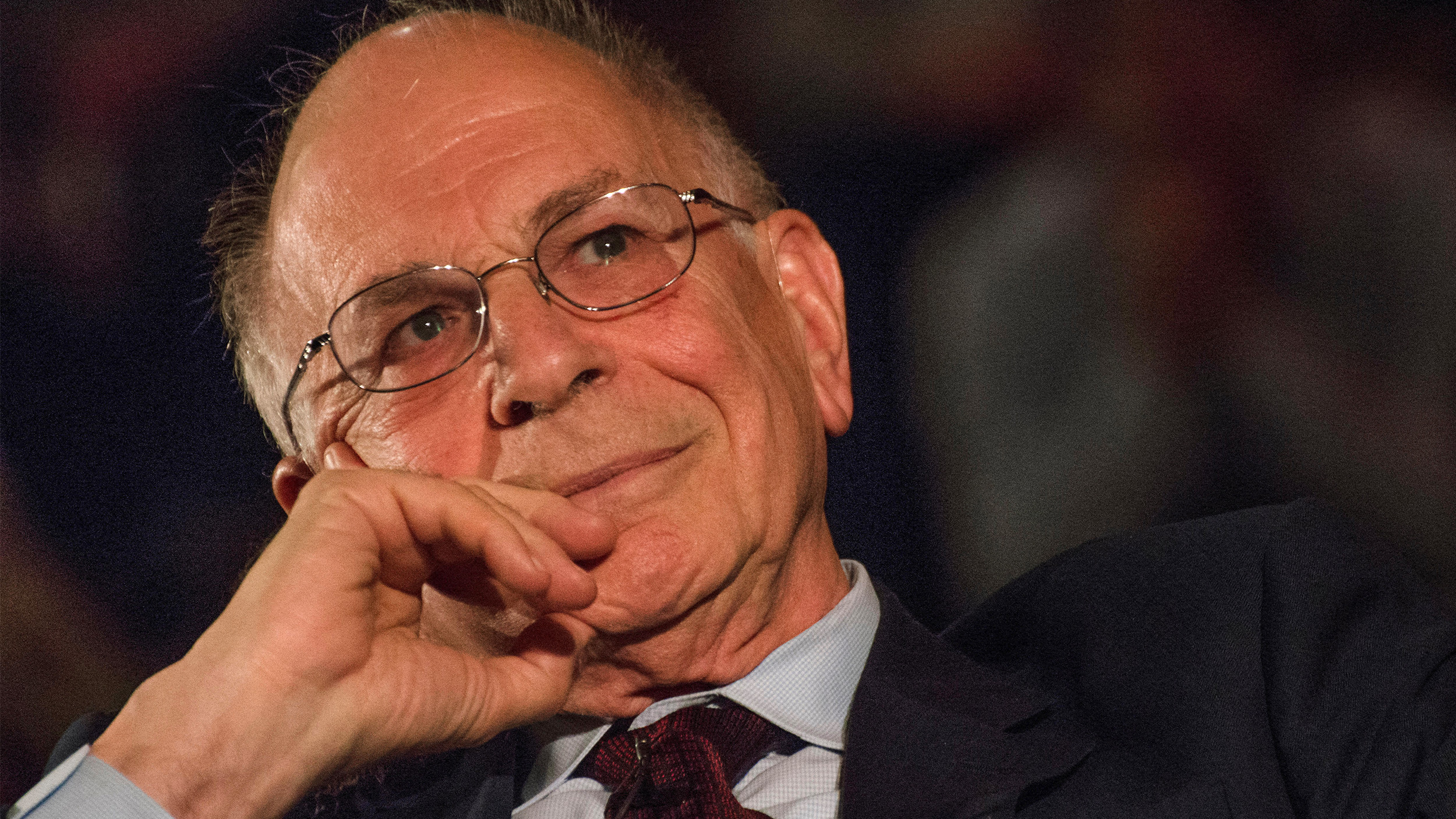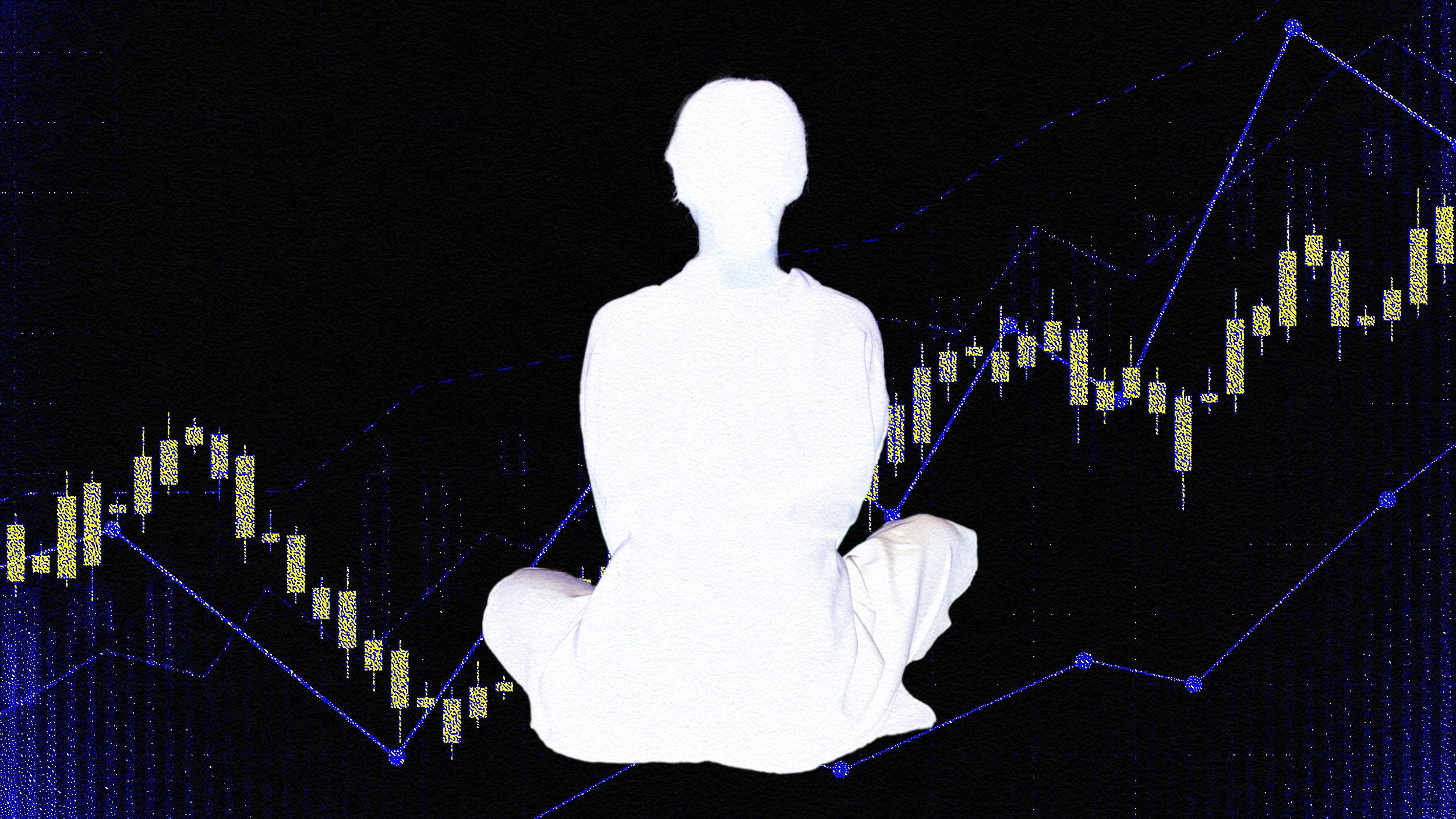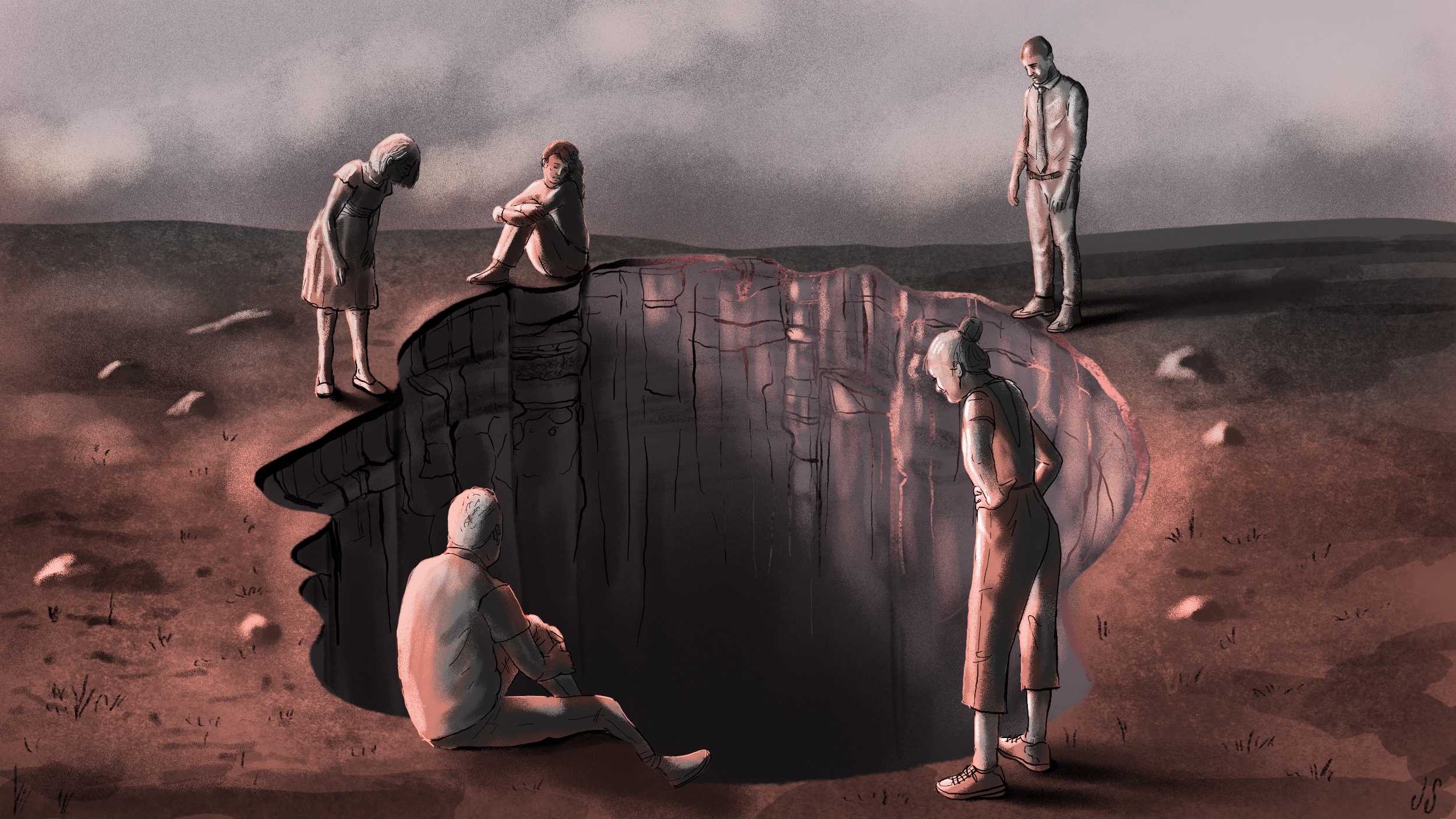10 powerful quotes to inspire your meditation practice

TORONTO, ON- Kevin Kwok demonstrates meditation techniques in a meditation pod at Mindset Gym. Sean Finnell led Kevin through a five minute meditation for photos. (Rene Johnston/Toronto Star via Getty Images)
- Meditation can have a profound impact in reducing anxiety and stress.
- While there are many ways to meditate, the ability to sustain your attention on one thing for a period of time is the foundation of them all.
- The more you practice, the more results you get, though quality of time is more important than quantity
Nothing is created in a vacuum. The emergence of meditation as a cultural staple in America is in large part a response to the continual fragmentation of attention. How one meditates can vary widely; different practices suit varying temperaments. Carving time into your day to focus on one thing for a sustained period does everyone good, for a clear mind is a healthy one. Reduce the stress of your own life and you tend to share that reward by being kinder to others.
Beyond anxiety reduction, there is the attentional deficit many of us are suffering from. As we offload more information to our devices, opportunities for sustained attention are dwindling. Why remember the route you’re taking when a map will carry you along? Why remember anything at all? Unfortunately, memory is critical for healthy cognitive functioning. Lose that and we lose everything.
Whether five minutes or five hours, the quality of time you put into a meditation practice matters. As with many practices, the more, the better, but even as little as ten minutes a day can be highly beneficial.
Where to begin
If you’re new to meditation, you might ask: Where to start? With something we all share, as advised by someone who’s been mediating his entire life.
The great advantage of choosing one’s breath as the object of mindfulness training is that breathing is an instinctive and effortless activity, something which we do as long as we are alive, so there is no need to strive hard to find the object of this practice.
The Dalai Lama, The Universe in a Single Atom: The Convergence of Science and Spirituality
Defining meditation
But what is it? As mentioned, meditation means different things to different people, though I appreciate this definition by a master, which discusses the importance of presence.
Meditation is to be aware of every thought and of every feeling, never to say it is right or wrong but just to watch it and move with it. In that watching you begin to understand the whole movement of thought and feeling. And out of this awareness comes silence. Silence put together by thought is stagnation, is dead, but the silence that comes when thought has understood its own beginning, the nature of itself, understood how all thought is never free but always old—this silence is meditation in which the meditator is entirely absent, for the mind has emptied itself of the past.
Krishnamurti, Freedom From the Known
Breathing meditation training by the Dalai Lama
Everyday mysticism
While mysticism is often advertised as a benefit of meditation, I prefer a secular practice, which is why I choose breathing as my point of focus. No idolatry, no divinity, just physiology. Not that a different focus is wrong, mind you, it simply doesn’t speak to me. My mystical inclination leans more in this direction.
Meditation is about embracing what is happening to this organism as it touches its environment in this moment. I do not reject the experience of the mystical. I reject only the view that the mystical is concealed behind what is merely apparent, that is anything other than what is occurring in time and space right now. The mystical does not transcend the world, but saturates it.
Stephen Batchelor, After Buddhism: Rethinking the Dharma for a Secular Age
Inner control
The biggest benefit, for me, is perspective. Meditation has helped me deal with the here and now in profound ways, including as an antidote to my longstanding history with panic attacks. The mystical and biological are not separate, as this neuroscientist explains.
When one breathes in the slow, measured way that is commonly taught in meditation, yoga, and relaxation training, the vagus nerve, which controls the parasympathetic nervous system, becomes more active, and the balance between the sympathetic and parasympathetic system improves. As a result, heart rate variability increases, and the times when it is somewhat slower provide windows of opportunity for automatic processes to drive heart rate down and thus reduce elevated blood pressure and other sympathetic responses.
Joseph LeDoux, Anxious: Using the Brain to Understand and Treat Fear and Anxiety
Entering the dark side
Controlling your nervous system with sustained practice is truly profound, considering they are generally autonomic processes. Many meditators also focus on the processes we control, including the dark spaces we don’t always like to discuss. This, of course, isn’t necessarily pretty. It means understanding and, if necessary, changing habits.
Body awareness puts us in touch with our inner world, the landscape of our organism. Simply noticing our annoyance, nervousness, or anxiety immediately helps us shift our perspective and opens up new options other than our automatic, habitual reactions. Mindfulness puts us in touch with the transitory nature of our feelings and perceptions. When we pay focused attention to our bodily sensations, we can recognize the ebb and flow of our emotions and, with that, increase our control over them.
Bessel van der Kolk, The Body Keeps the Score: Brain, Mind, and Body in the Healing of Trauma
Guided Meditation with Sam Harris – Short Version
Discovering freedom
Mediation is often pictured as peaceful, but anyone wrestling with their mind knows this not to be true. You can get there, but it takes work. That work means owning all of yourself.
The freedom the Buddha envisioned does not come from jettisoning imprisoning thoughts and feelings or from abandoning the suffering self; it comes from learning how to hold it all differently, juggling them rather than cleaving to their ultimate realities.
Mark Epstein, The Trauma of Everyday Life
Pain as a means of healing
Including pain, which can be an entry point into healing.
Since the essence of meditation is awareness, any sensation that anchors attention can be used as support—and pain particularly can be very effective in focusing.
Daniel Goleman and Richard J. Davidson, Altered Traits: Science Reveals How Meditation Change Your Mind, Brain, and Body
The bigger picture
Of course, this also means recognizing your place in the bigger picture, which I find to be more liberating than frightening. As an animal fearful of death, however, this is no easy path.
It is because our way of observing things is deeply rooted in our self-centered ideas that we are disappointed when we find everything has only a tentative existence. But when we actually realize this truth, we will have no suffering.
Shunryu Suzuki, Zen Mind, Beginner’s Mind
Getting centered
Because once existential threat is managed, you begin to understand empathy and compassion.
Meditation is thus a form of centering, which involves our disengagement from the machine of our mind and our resting in the heart.
Georg Feuerstein, The Deeper Dimension of Yoga: Theory and Practice
Finally, nothing
Putting these qualities into action, however, is another story—one worth living.
To really do nothing, with perfection, is as difficult as doing everything.
Alan Watts, Buddhism: The Religion of No-Religion
—
Stay in touch with Derek on Twitter and Facebook.





